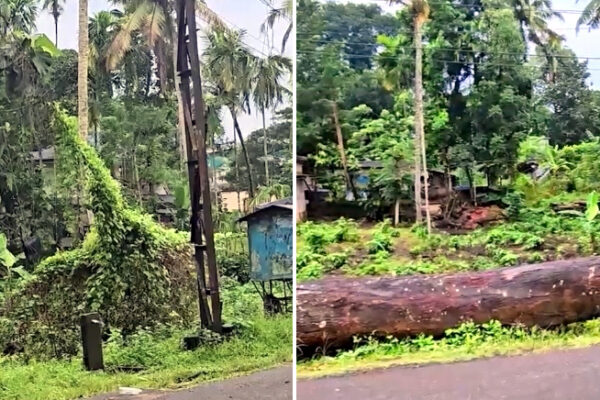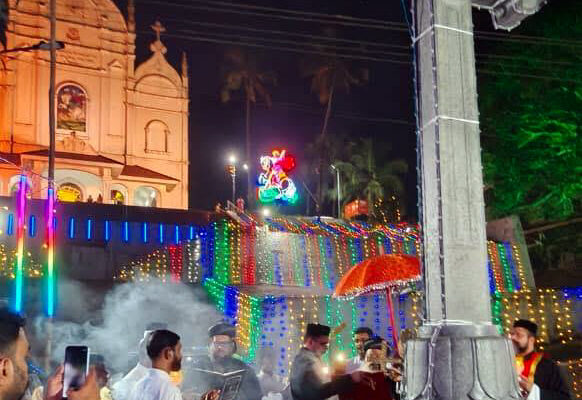
The arrest of two Catholic nuns and a young man at Durg Railway Station on July 25 has sparked outrage among human rights advocates and religious minorities across India. The group was detained while accompanying three young Christian girls from Chhattisgarh to Agra, Uttar Pradesh, where the girls were reportedly set to begin work at a hospital.
Authorities charged the nuns and the man under Section 143 of the Bharatiya Nyaya Sanhita (BNS) for human trafficking and Section 4 of the Chhattisgarh Freedom of Religion Act, 1968—commonly referred to as the anti-conversion law. These charges were filed after members of the Hindu nationalist group Bajrang Dal intercepted them at the station and accused them of attempting to forcibly convert tribal girls under the claim of facilitating work opportunities.
According to eyewitnesses, Bajrang Dal activists confronted the group based on a tip-off and pressured the railway police t o detain them. The situation quickly escalated as both Christian and Hindu groups gathered at the station, chanting religious slogans that heightened communal tensions.
The nuns have categorically denied any wrongdoing and presented parental consent letters for the girls’ travel and employment. All three girls, from the Narayanpur district, were reportedly traveling of their own will to take up hospital work in Agra.
However, local police allegedly prioritised the Bajrang Dal’s accusations, detaining the nuns and the young man without further inquiry. According to community leaders and human rights lawyers, the arrests reflect an increasing pattern of criminalising Christian missionary work under vague or misapplied legal provisions.
Faith leaders, legal experts, and civil society groups have called for the immediate release of the detained individuals and an independent investigation into the actions of the Bajrang Dal members who instigated the confrontation.
The incident has reverberated through India’s political corridors. K. C. Venugopal, a senior Member of Parliament from the opposition Indian National Congress, wrote to Union Home Minister Amit Shah demanding immediate action and an impartial investigation.
In his letter, Venugopal described the arrests as “a blatant miscarriage of justice and a direct attack on the rights and dignity of citizens belonging to minority communities.” He condemned the incident as a case of vigilante injustice and called on the central government to take legal action against those inciting mob violence and spreading communal hatred.
“It is deeply disturbing that a group of self-proclaimed vigilantes could create such chaos, incite communal tension, and make unverified accusations… despite clear parental consent and documentation,” Venugopal wrote.
Growing Hostility Toward Christians
The arrests have come amid growing concerns over the increasing persecution of Christians in India, particularly under the Bharatiya Janata Party (BJP), which governs both the central government and the state of Chhattisgarh. Rights organisations have reported a rising number of incidents where Christian missionaries, pastors, and laypersons are harassed or falsely accused of conversion.
Sign Petition
In response to this and similar cases, a Change.org petition titled “End the Persecution of Christians in India” has garnered national and international attention. The petition calls on global human rights bodies and the Indian government to put an end to the misuse of anti-conversion laws and to protect religious minorities from harassment and mob violence.
🔗 View Petition Here






